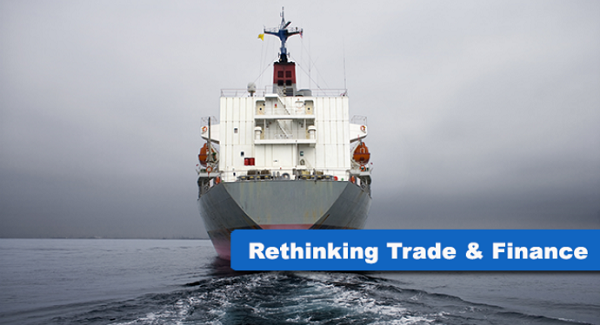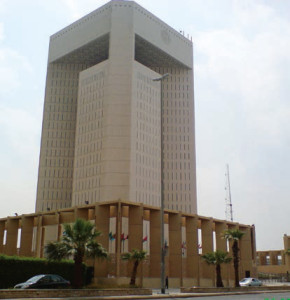
The world’s Great and the Good of the financial world inevitably call in on the Islamic Development Bank Group when visiting Saudi Arabia. Since it started operations in 1975, the organisation has approved financing of development projects and intra-Islamic trade totalling some $100bn. But, as MUSHTAK PARKER explains, it now faces questions on what to do in the future
These days a string of prominent international figures when visiting Saudi Arabia inevitably flock to the corridors of influence and financing of the Islamic Development Bank (IDB) Group in downtown Jeddah.
In the past few months it has seen no lesser icons of global economic influence than Christine Lagarde, president of the International Monetary Fund (IMF), Jim Yong Kim, president of the World Bank, and Bill Gates, the philanthropist and one of the richest people on the planet.
Saudi King Abdullah was due to visit in June to grace the opening ceremony of the 40th anniversary of the IDB, the multilateral development bank (MDB) of the Muslim world. But it was the ailing King’s half-brother Prince Salman who attended instead.
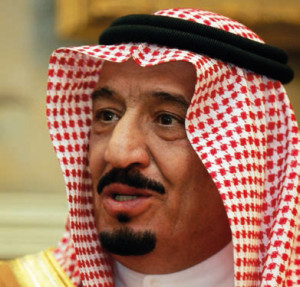
For a multilateral, which started operations in 1975, the IDB has come a long away, approving financing of development projects and intra-Islamic trade totalling some $100bn, of which $10bn alone was disbursed in fiscal year 2012/2013.
Armed with a recent capital increase that saw its authorised capital rise to $150bn and its subscribed capital to $75bn, which is second only to the World Bank, and backed by a Zero Risk Weighting by the Bank of International Settlements (BIS) in Basel, and an AAA financial strength rating by the three international rating agencies, Moody’s, Standard & Poor’s and Fitch, the IDB enters its next 40 years with a sense of new-found maturity but also with some trepidation given that a large number of its member countries are some of the poorest on earth and several are faced with brutal internecine civil wars and terrorism especially in Afghanistan, Iraq, Syria, Yemen and Pakistan.
But judging from the utterings of the IDB board of governors, usually the ministers of finance, economy or planning of member countries, at the bank’s 39th annual meeting held in Jeddah in June and beyond, and the debate surrounding the IDB Vision 2020, IDB Group Assessment Report of June 2014 and the IDB 10-year Strategic Framework (2015-2024), the bank has got its work cut out going forward.
Indeed, the main resolution of the board of governors at its meeting in Jeddah expressly assigned “the Board of Executive Directors of IDB to: i) transform the proposed Ten-Year Strategic Framework into a detailed strategy with implementation plans, concrete mechanisms, and specific timelines; and ii) to submit up-to-date periodic reports to the board of governors on the progress achieved in implementing the strategy”.
At the same time, the board called upon the entities of the IDB Group – the International Islamic Trade Finance Corporation (ITFC), the trade fund of the group; the Islamic Corporation for the Development of the Private Sector (ICD), the private-sector funding arm of the group; and the Islamic Corporation for the Insurance of Investment and Export Credit (ICIEC), the export credit agency of the group, “to develop detailed and comprehensive strategies that include detailed implementation plans and specific timelines that are aligned with the Ten-Year Strategy Framework”.
While there was no call for a fresh general capital increase for the IDB at the Jeddah annual meeting, other than the perennial call on those member countries that have not yet subscribed to the 4th and 5th General Capital Increases of the IDB, to do so, a few countries, cognisant of the increasing demands for infrastructure and trade finance of member countries over the next few years proposed “a general/special capital increase for ICIEC, ITFC and ICD to enable them to step up their funding to mostly the private sector, which is the engine of growth of our economies”.
The business case for capital increases for the IDB entities is implicit and is supported by the senior management of these entities. But there seems to be a split among the IDB board of governors with Saudi Arabia and its Gulf Cooperation Council (GCC) allies favouring both the parent and its entities to embark on a resource mobilisation strategy that relies more on tapping the capital markets through Sukuk issuance and on generating more income and profits, than merely on shareholder funds.
Not surprisingly (in late July), the IDB itself issued a US$1bn 5-year Sukuk through a private placement to investors in the Middle East, Asia and Europe – its largest ever such issuance, which was underwritten by the IDB and priced at a coupon rate of 1.8118 per cent per annum.
The IDB had already issued a $100m Sukuk through a private placement in April this year, preceded by a $1.5bn Sukuk in February. All this resource mobilisation comes under the Bank’s $10bn Islamic Trust Certificates Programme approved in December 2013.
The IDB is indeed under tremendous pressure from its board of governors, especially the Saudis, to use its AAA rating to mobilise funds from the international markets at cheaper rates more comparable to peer institutions.
However, this ask is more complex given that, compared to peer institutions, the IDB is not a frequent Sukuk issuer and its volumes are relatively smaller. Pricing will improve only if the IDB overcomes the frequency and volume conundrum.
Despite the above, the Kingdom is the prime mover behind the capital calling at the IDB. It is the single largest shareholder of the Bank at 4.3bn Islamic dinars (ID) (One ID is equal to One Special Drawing Right of the International Monetary Fund (IMF)) and commands an impressive 23.7 per cent of voting rights.
Recently, Saudi Arabia decided to up the anti by increasing its contribution to the IDB’s subscribed capital by $11.8bn in the context of the bank’s 5th General Capital Increase.
The call for reform and renewal including at the IDB comes from the top. Saudi Crown Prince, Prince Salman Bin Abudulaziz, while confirming “the Kingdom’s support to the IDB Group for further growth and success,” and emphasising “its firm belief in the IDB’s vision and mission” in the same breath warned that the “Muslim world is facing great challenges that require continuous and tireless work, most notably the economic challenge of achieving human development and sustainable economic growth, and promoting peace and stability. These challenges require implementing ambitious reform programmes, addressing economic weaknesses, adapting to the changing global economic environment, intensifying efforts to eliminate obstacles to development, and promoting moderation. We appreciate the Islamic Development Bank Group’s assistance to Member countries to meet these challenges.”
But it was left to his Finance Minister, Dr Ibrahim Al Assaf of Saudi Arabia, to do the blunt speaking. The core platform of “Assaf Speak” for the IDB and its entities is “a financial strategy based on financial sustainability”. In plain English this translates into plans that are realistic and implementable with specific timeframes and outcomes that can be measured and evaluated.
“Annual budgets,” explained Dr Al Assaf, in his address to his fellow board of governors, “must be bolstered through the increase of revenues and cost control, careful and continuous review of expenditure and taking the necessary measures to improve revenues in order to enhance the group’s financing capacity, while reserves should also be built to support this capacity.”
This would be fine if the reality of the capital structure of ICIEC, ICD and ITFC was different. ICIEC, for instance, is grossly undercapitalised at $158m compared to the US$1bn plus capital of peer institutions such as Sinosure, Turk Exim and Eurler Hermes. ICIEC’s underwriting capacity is severely constrained by its low capital, because for every dollar of capital subscribed, the corporation can provide at least 10 times in insurance support for member countries’ exports and inward foreign direct investment.
The corporation has provided trade and political risk insurance worth $24.4bn to Member Countries over the last 20 years. This comprises insuring exports totalling $12.4bn, imports into member countries of $8bn, and inward and outward Foreign Direct Investments (FDI) of around $4bn. All this has been done on a paid-up capital base of only $158m. This translates into the corporation having effectively leveraged its capital by 154 times. Indeed, by May 2014, the cumulative operations insured by ICIEC had increased to $27.25bn.
ICIEC’s detractors are outweighed by the corporation’s supporters on the IDB board of governors. Dr Muhammad Saeed al Saadi, Yemen’s Minister of Planning and International Cooperation, who is also the country’s governor to the IDB, commended the role ICIEC is playing in establishing partnerships with local institutions such as the Yemeni General Investment Board, the Yemeni Export Promotion Agency and local banks.
ICD, despite generating a modest profit, Al Assaf urged must ensure the enhancement of its capacity to face market fluctuations, and has to work on finding sustainable sources of finance in order to sustain its operations. This, he added, can be achieved by obtaining a good assessment by rating agencies, focusing on quality projects and promoting partnerships with international finance corporations, particularly those targeting the private sector.
“Concerning the ITFC,” he advised, “despite the growth in business and efforts made to improve performance and increase revenues, there is an urgent need to continue development building on the historical assessment study, particularly with regard to the volume of business and revenues. This is to enable ITFC to become an institution of high creditworthiness in conformity with the IDB rating, and a reliable partner in trade financing and technical support to the member countries in the field of trade promotion.”
With regard to the Bank itself, Dr Al Assaf emphasised that “it is important to give financial sustainability and resource growth, particularly returns from operations and on investment, the attention they deserve. These should be tied to performance indicators to be monitored periodically. Expenditure should be controlled and particular attention be given in the application of best practices, good governance and internal auditing standards, as well as risk management.”
In contrast, Iran, the third largest shareholder of the IDB after Saudi Arabia and Nigeria, had a clear and present message, which focused more on the development finance ethic of the MDB. Given that the IDB has had five general increases in its capital and its subscribed capital stands at $75bn, Iran urged the bank to increase its operations especially in financing infrastructure and intra-Islamic trade.
Perhaps more importantly with the rise of Syndicated financing especially Syndicated Murabaha in the Islamic finance space, and the increased co-financing activities of the IDB with peer multilaterals, Tehran is urging the establishment of a Specialised Murabaha Syndication and Co-financing Department within the IDB Treasury.
Iran would also like the IDB to leverage cooperation with the 22 or so Sovereign Wealth Funds (SWFs) of OIC countries whose combined assets under management is in excess of $2 trillion, through co-investing and financing projects in member countries.
In a direct reposte to Saudi Finance Minister Dr Al Assaf, the IDB governor for Iran, backed by Egypt, called for a change in the financing approach of IDB entities such as ITFC and ICD.
“These corporations have had significant and admirable performance in private sector financing and enhancing promotion of intra-trade amongst member countries. In order to improve the efficiency of the said corporations, their developmental approaches need to be emphasised more than their commercial ones.” Similarly, Egypt is keen that the IDB sustains the development process and increases the development impact of its operations.
Iran would also like to see both the ITFC and ICD increase their short and medium-term credit lines to support private sector SMEs.
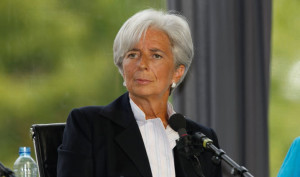
Tehran’s final recommendation is radical – that of designing a new international financial and banking instruments aimed at “substituting LIBOR (London Inter Bank Offered Rate) with an Islamic Countries’ Inter-Bank Offered Rate, enhancing the activities of international Islamic credit rating agencies, and designing a new mechanism to replace SWIFT (the global bank payments system)”.
A major issue relating to ITFC and ICD financing is its cost, which member countries and corporates continue to emphasise is not competitive compared with private sector alternatives.
“It is hoped,” said the IDB governor for Egypt, “that the ICD’s policies and costs of its programmes are continuously revised and evaluated. I would like to congratulate the ITFC on its Assistance for Trade Initiative for Arab Countries, which aims at increasing economic development. While we fully support the initiative, it is hoped that subsequent phases of the initiative would extend to include all member countries. We look forward to the review of the policies of the cost of financing as well as its terms and conditions. In this regard, the bank should make use of its AAA credit rating to mobilise resources from international markets at competitive prices with a view to lowering the costs of trade and project financing.”
This issue of cheaper cost of financing and concessional financing was echoed by Jordan, which wanted the IDB to provide more liquidity and capital to the private sector at the least cost to raise its competitiveness and, in particular, the reinforcement of SME-promoted projects that provide most of the new job opportunities in the Jordanian economy. “These projects usually suffer from the lack of concessional financing as a result of the difficulty of getting loans from commercial banks and the high interest rates associated with such loans,” rued the IDB governor for Jordan.
On the other hand, Oman’s governor to the IDB confirmed that the Omani government is finalising arrangements to issue its first benchmark sovereign Sukuk. He noted that IDB spending in the agriculture and food security sector actually declined in 2013 to ID439m compared with ID467.7m in the previous year. However, the actual funds disbursed were less than ID300m, some 45.5 per cent of the total funds allocated for this sector.
Nevertheless, at the 39th annual meeting of the IDB board of governors, the MDB unleashed the power of its resources, signing $2.45bn worth of new financing agreements with 22 Member Countries, $1.5bn of which went to the energy production and transmission sector, with the rest for sectors such as communications, roads and transport, food security, irrigation, farming and fisheries, health care, water supply, job creation and SMEs (small-and-medium-sized enterprises).
This included $752m to finance four power and water supply projects; $220m to Morocco to finance the building of a power transmission grid; and a $20m line of credit for a trade finance project. A month earlier the IDB had approved $222m for Egypt’s West Cairo Power Plant Project, and $48m for Bahrain’s Muharraq Pearling Heritage Conservation Project.
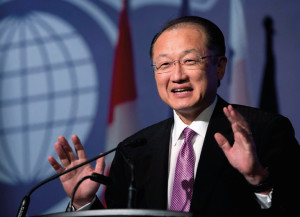
The meeting between IDB president Dr Ahmad Mohamed Ali and Jim Yong Kim, president of the World Bank, was crucial. The two multilaterals decided to upsize their cooperation in several fields, including co-financing. One manifestation of this co-operation is the co-financing of the $1bn Expressway No. 1, a major trade-corridor connecting Umm ul Qasr in the Southern Iraqi Province of Basra to areas near Syria and Jordan and passing through several cities, including Baghdad.
Iraq’s Finance Minister, Dr Safauddin Mohammed Al Safi ,recently signed an agreement with the IDB to provide $217m (22 per cent of the financing) to fund the construction of 258 kilometres of Expressway No1. The World Bank is providing 32 per cent of the funding and the Iraqi government 29 per cent, with the remainder coming from other multi-laterals and agencies.
The IDB funding comes under the $500m Iraq Reconstruction Programme launched by the IDB way back in 2003, but which never really took off because of political instability due to violence in the country. The IDB’s trade finance fund, ITFC, hopes that its recent MoU signed with the Global Coalition for Efficient Logistics (GCEL) would trigger “a new era of trade efficiency towards a vast expansion of trade finance for OIC Countries through the HumaWealth Programme”.
According to ITFC, “the HumaWealth 18-month global programme will empower the Digital Economy by providing the tools unleashing the power of 21st century technology by delivering a new era of integrated e-commerce, e-finance, e-insurance and e-logistics to achieve new levels of trade efficiency”. The two parties also released the KSA Trade Efficiency Assessment on Saudi Arabia, “which illustrates how the Digital Economy eco-system will make trade more efficient and transparent in order to facilitate global integration of financial services to the trade pipeline with intelligent proficiency”.
According to ITFC CEO Dr Waleed Al-Wohaib, “the trade efficiency assessment findings revealed that the banking sector ranked last in terms of integration among all the trade pipeline participants scoring an average of 0.90 out of five, (five being what today’s technology makes possible)”.
The ITFC also recently signed a three years framework agreement with the total amount of $1.5bn with the Ministry of Petroleum and Natural Resources of Pakistan for the import of crude oil and refined petroleum products, mainly from Saudi Arabia. The financing aims at meeting Pakistan’s energy requirements for the years 2014 to 2016.
Dr Al-Wohaib explained,“It is ITFC’s mandate to support Member Countries’ strategic sectors and to improve their trading capacity. ITFC is interested in enhancing its long-term trade partnership with Pakistan in its endeavours to achieve its economic targets. This financing will allow Pakistan to fulfil its requirements in financing vital imports of crude oil and refined petroleum products.”
ITFC signed a similar $220m framework agreement with Gambia to support the country’s energy needs and its agriculture sector. n
 Cash And Trade Magazine For Cash and Trade professionals in the Middle East
Cash And Trade Magazine For Cash and Trade professionals in the Middle East


